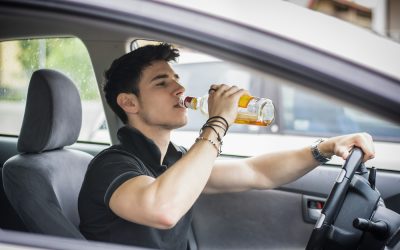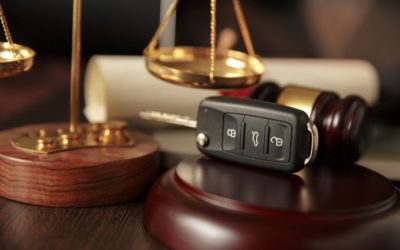Whether you reside in California or are simply traveling through, you must adhere to CA Vehicle Code 22350, the basic speed law. This law prohibits motorists from driving at speeds that endanger the safety and property of others.
If you have been charged with drunk driving, it is also possible you could face penalties under CA Vehicle Code 22350 for speeding. Fortunately, with the help of a dedicated Los Angeles DUI lawyer, you may be able to avoid potential consequences associated with speeding and driving under the influence.
What Is California’s Basic Speed Law Under CA Vehicle Code 22350?
Under CA Vehicle Code § 22350, the state requires all California drivers to operate their vehicles at a safe and reasonable rate of speed. However, that rate of speed can vary considerably depending on the specific circumstances of a case.
If you’re facing DUI charges and penalties under CA Vehicle Code 22350 – basic speed law, you’ll want to work with a skilled lawyer. An attorney can use their knowledge of the law to assess the factors at play in your unique situation and construct a strong defense case on your behalf.
Factors That Determine Whether a Speed is Safe or Reasonable
Different driving speeds are appropriate for different settings. Some of the factors that may be taken into consideration when determining whether a speed should be considered reasonable and safe include:
- Whether there were bicyclists or pedestrians near your vehicle
- Whether you were driving over a hill
- Whether there was a lot of traffic on the road you were driving on
- Whether you were driving in a remote, crowded, or residential area
- Whether a railroad crossing was close by
- Whether animals were closed by
- The road conditions
- Whether your view was obstructed
Distinguishing Basic Speed Limit Law and Prima Facie
California has two primary types of speed limits: absolute and prima facie. If you’re facing DUI charges and penalties under the basic speed law set forth in CA Vehicle Code 22350, learning about the differences between these two types of speed limits can help you understand your case.
Absolute Speed Limits
When you exceed an absolute speed limit, you can automatically be found in violation of maximum speeding laws. Absolute speed laws bar you from operating your vehicles faster than:
- 55 mph on two-lane, undivided highways unless marked for higher rates of speed
- 65 mph on highways and freeways that are not marked 70 mph
- 70 mph on highways marked as such under California Vehicle Code § 22356
Prima Facie Speed Limits
Prima facie speed limits, outlined in California Vehicle Code § 22352, are considered presumed limits. These limits include 15 mph at intersections and railroad crossings and 25 mph in residential and business districts and school zones.
If you’ve exceeded a prima facie speed limit, it doesn’t automatically imply a violation. However, you must demonstrate that you were operating at a safe or reasonable speed to avoid penalties.
An experienced Los Angeles DUI lawyer can draw on their knowledge of the basic speed laws in CA Vehicle Code 22350 and other codes to protect you from fines and penalties associated with impaired driving.
What Are the Penalties for Violating CA Vehicle Code § 22350?
There are several potential consequences you could face if you are found in violation of the basic speed laws found in CA Vehicle Code §22350. Some of these penalties include the following:
- Speeding tickets
- Suspension or revocation of your driver’s license
- Points being added to your driving record
- Liability for causing motor vehicle accidents
- Increased auto insurance premiums
These penalties can lead to much larger problems in your life. For example, if your license is revoked or suspended, you may find it difficult or impossible to continue working and supporting yourself and your family. In addition, if your insurance premiums are raised high enough, it could make it difficult or impossible for you to keep your car on the road.
Since these penalties can have far-reaching impacts on your life, you’ll want to work with an experienced lawyer. An attorney can work hard to protect you from any DUI or speeding consequences you’re facing.
Can I Receive a Violation Under § 22350 for Driving Below the Posted Speed Limit?
If the established speed limit is higher than the speed of the flow of traffic or if roadway conditions prevent you from traveling at the average speed, you might be worried about receiving a violation for driving below the posted speed limit.
Fortunately, you will not be penalized as long as you can demonstrate that your slower speed did not dangerously disrupt traffic. An attorney can help you prove this.
Challenging a CA Vehicle Code § 22350 Traffic Ticket
If you’ve been accused of a speeding violation, there are several ways you can challenge it and avoid penalties. You and your attorney can challenge the accusation by presenting evidence that proves one or more of the following statements:
- Your actual speed was considered reasonable and safe under the prima facie speed limit
- Police officers lacked probable cause to stop you
- It was necessary for you to drive at an excessive rate of speed due to an emergency
- Police failed to operate radar devices accurately
- There was a mistake of fact
- Your constitutional rights were violated
- The stop was unlawful or improper, such as an illegal speed trap
Is Speeding Violation a Criminal Offense?
It is important to know that CA Vehicle Code §22350, the basic speeding law, is not considered a criminal offense. Violations of California Vehicle Code §22350 are considered infractions under California law. This means you are not at risk of being incarcerated due to a speeding violation of any kind.
However, if you happen to cause a collision, were under the influence of drugs or alcohol, or were found to be committing a crime while violating the state’s basic speeding law, it is more likely that you could face criminal charges.
Whether you are facing criminal charges or lesser violations, your life could be turned upside down if you do not take action to protect your future. Luckily, a lawyer can review the details of your case and build a strong defense on your behalf.
How a Los Angeles DUI Lawyer Can Help You
In addition to challenging speeding accusations, an attorney can also fight any impaired driving charges you may be facing. Remember, a DUI conviction can seriously impact your life and make it difficult for you to find work in the future. Instead of jeopardizing your freedom and livelihood, you’ll want to hire an experienced attorney.
Here’s what a seasoned DUI defense lawyer can do to combat your DUI charges:
- Investigate your DUI incident
- Gather blood alcohol content (BAC) test results, witness statements, surveillance footage, and other forms of evidence to strengthen your case
- Review the arresting officer’s conduct to determine if your rights were violated
- Challenge the accuracy of field sobriety tests
- Construct a robust defense case
- Negotiate with the prosecution to obtain a plea deal
- Represent you in court
- Make a convincing argument as to why your charges should be reduced or dropped
- Answer any questions you have about CA Vehicle Code 22350 and basic speed laws
Learn More About CA Vehicle Code 22350 – Basic Speed Law Violations
CA Vehicle Code §22350 – basic speed law violations and DUI charges could have a significant impact on your life and livelihood. To protect yourself from severe consequences, you’ll want to find an experienced legal advocate who has handled cases like yours in the past.
Contact a Los Angeles DUI lawyer today to schedule a free consultation and learn more about your legal options. We’ll provide the information and resources you need to fight your speeding and impaired driving accusations. We look forward to hearing from you soon.






